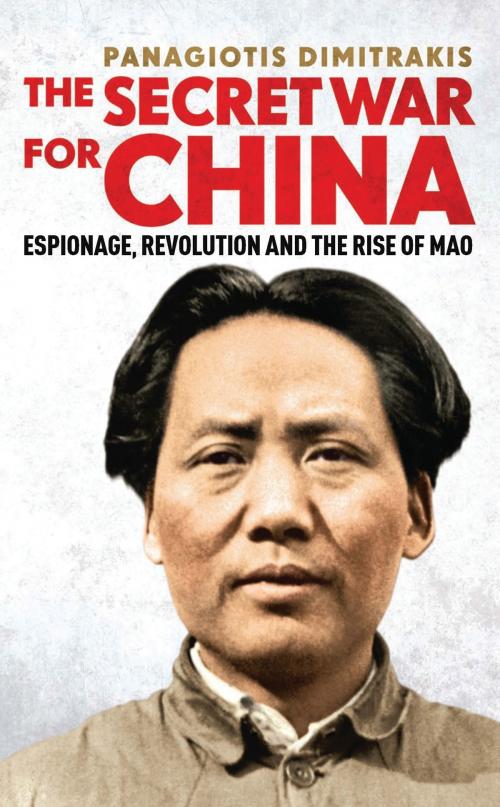The Secret War for China
Espionage, Revolution and the Rise of Mao
Nonfiction, History, Asian, China, Social & Cultural Studies, Political Science| Author: | Panagiotis Dimitrakis | ISBN: | 9781786722713 |
| Publisher: | Bloomsbury Publishing | Publication: | September 22, 2017 |
| Imprint: | I.B. Tauris | Language: | English |
| Author: | Panagiotis Dimitrakis |
| ISBN: | 9781786722713 |
| Publisher: | Bloomsbury Publishing |
| Publication: | September 22, 2017 |
| Imprint: | I.B. Tauris |
| Language: | English |
In 1927, Chiang Kai-shek - the head of China's military academy and leader of the Kuomintang (KMT) - began the 'northern expeditions' to bring China's northern territories back under the control of the state. It was during this period that the KMT purged communist activities, fractured the army and sparked the Chinese Civil War - which would rage for over twenty years. The communists, led by General Mao Tse-Tsung, were for much of the period forced underground and concentrated in the Chinese countryside. As the author argues, this resulted in China's war featuring unusually high levels of espionage and sabotage, and increased the military importance of information gathering. Based on newly declassified material, Panagiotis Dimitrakis charts the double-crossings, secret meetings and bloody assassinations which would come to define China's future. Uniquely, The Secret War for China gives equal weighting to the role of foreign actors: the role of British intelligence in unmasking Communist International (Comintern) agents in China, for example, and the allies' attempts to turn nationalist China against the Japanese. The Secret War for China also documents the clandestine confrontation between Mao and Chiang and the secret negotiations between Chiang and the Axis Powers, whose forces he employed against the CCP once the Second World War was over. In his turn, Mao employed nationalist forces who had defected - during the last three years of the civil war about 105 out of 869 KMT generals defected to the CCP. This book is an urgent and necessary guide to the intricacies of the Chinese Civil War, a war which decisively shaped the modern Asian world.
In 1927, Chiang Kai-shek - the head of China's military academy and leader of the Kuomintang (KMT) - began the 'northern expeditions' to bring China's northern territories back under the control of the state. It was during this period that the KMT purged communist activities, fractured the army and sparked the Chinese Civil War - which would rage for over twenty years. The communists, led by General Mao Tse-Tsung, were for much of the period forced underground and concentrated in the Chinese countryside. As the author argues, this resulted in China's war featuring unusually high levels of espionage and sabotage, and increased the military importance of information gathering. Based on newly declassified material, Panagiotis Dimitrakis charts the double-crossings, secret meetings and bloody assassinations which would come to define China's future. Uniquely, The Secret War for China gives equal weighting to the role of foreign actors: the role of British intelligence in unmasking Communist International (Comintern) agents in China, for example, and the allies' attempts to turn nationalist China against the Japanese. The Secret War for China also documents the clandestine confrontation between Mao and Chiang and the secret negotiations between Chiang and the Axis Powers, whose forces he employed against the CCP once the Second World War was over. In his turn, Mao employed nationalist forces who had defected - during the last three years of the civil war about 105 out of 869 KMT generals defected to the CCP. This book is an urgent and necessary guide to the intricacies of the Chinese Civil War, a war which decisively shaped the modern Asian world.















